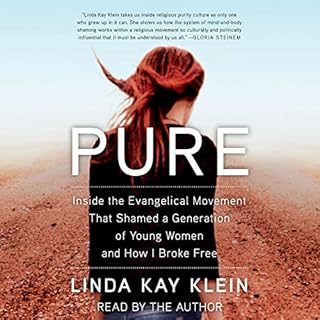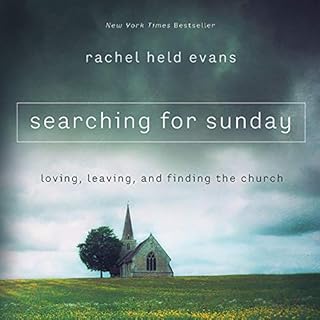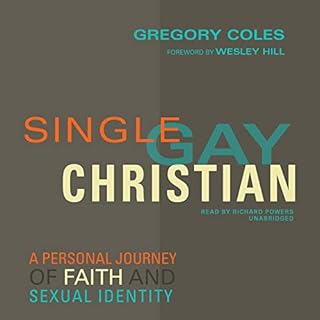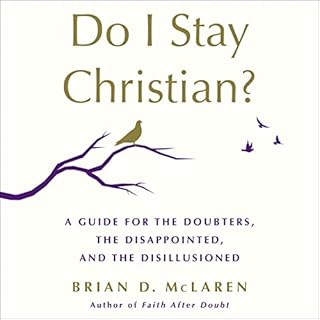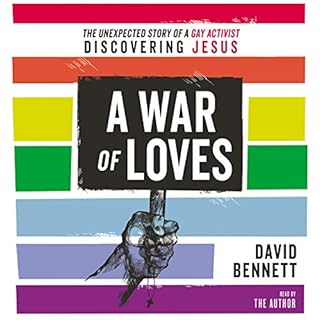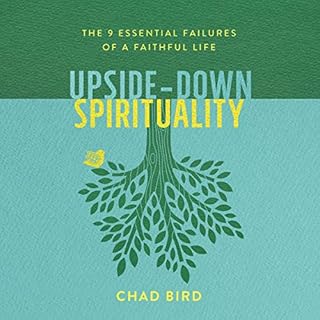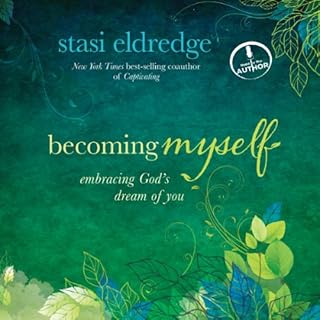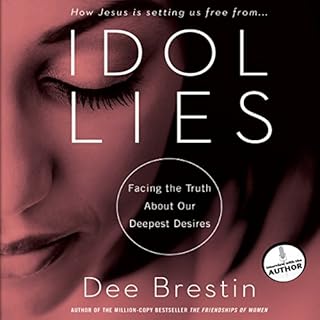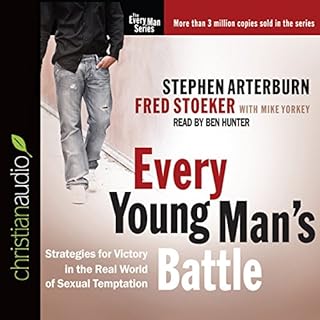
Shameless
A Sexual Reformation
No se pudo agregar al carrito
Add to Cart failed.
Error al Agregar a Lista de Deseos.
Error al eliminar de la lista de deseos.
Error al añadir a tu biblioteca
Error al seguir el podcast
Error al dejar de seguir el podcast
$0.99/mes por los primeros 3 meses
 Exclusivo para miembros Prime: ¿Nuevo en Audible?
Exclusivo para miembros Prime: ¿Nuevo en Audible?Obtén 2 audiolibros gratis con tu prueba.
Compra ahora por $13.50
No default payment method selected.
We are sorry. We are not allowed to sell this product with the selected payment method
-
Narrado por:
-
Nadia Bolz-Weber
-
De:
-
Nadia Bolz-Weber
Acerca de esta escucha
Raw, intimate, and timely, Nadia Bolz-Weber’s latest book offers a full-blown overhaul of our harmful and antiquated ideas about sex, gender, and our bodies.
Christians are obsessed with sex. But not in a good way. For generations countless people have suffered pain, guilt, and judgment as a result of this toxic fixation on sex, the body, and physical pleasure. In the follow-up to her celebrated New York Times best seller Accidental Saints, Bolz-Weber unleashes her critical eye, her sharp pen, and her vulnerable but hopeful soul on the caustic, fear-riddled, and religiously inspired messages about sex that have fed our shame.
In turn, Bolz-Weber offers no simple amendments or polite compromises, because the stakes are too high - and our souls and our bodies are worth too much. Instead, this tattooed, swearing, modern-day pastor calls for a new reformation. She urges us to take antiquated, sexist ideas about sex, gender, and our bodies and “burn them the f--k down and start all over.”
This is a journey of holy resistance. Along the way, as antidotes to shame, heresy, and all-too-familiar injustice, Bolz-Weber dispenses grace, freedom, and courage. She shares stories, poetry, and scripture, cultivating resilient hope and audacious love rooted in good news that is “powerful enough, transgressive enough, and beautiful enough to heal not only the ones who have been hurt but also those who have done the hurting.”
In Bolz-Weber’s most personal, bracingly honest book yet, she shares intimately about her life, with her trademark blend of vulnerability, humor, and candor. If you’ve been mistreated, confused, angered, and/or wounded by the shaming sexual messages so prevalent in religion, this one is for you. Includes a PDF of images and drawings from the book.
PLEASE NOTE: When you purchase this title, the accompanying PDF will be available in your Audible Library along with the audio.
©2019 Nadia Bolz-Weber (P)2019 Random House AudioLos oyentes también disfrutaron...
-
Pastrix
- The Cranky, Beautiful Faith of a Sinner & Saint
- De: Nadia Bolz-Weber
- Narrado por: Nadia Bolz-Weber
- Duración: 5 h y 39 m
- Versión completa
-
General5 out of 5 stars 1,181
-
Narración:4.5 out of 5 stars 1,061
-
Historia5 out of 5 stars 1,059
Heavily tattooed and foul-mouthed, Nadia Bolz-Weber, a former stand-up comic, sure as hell didn't consider herself to be religious-leader material - until the day she ended up leading a friend's funeral in a smoky downtown comedy club. Surrounded by fellow alcoholics, depressives, and cynics, she realized: These were her people. Maybe she was meant to be their pastor. Using life stories, Nadia uses humorous narrative and poignant honesty to portray a woman who is both deeply faithful and deeply flawed, giving hope to the rest of us along the way.
-
5 out of 5 stars
-
WoW wOw WoW
- De Deborah en 11-26-13
De: Nadia Bolz-Weber
-
Accidental Saints
- Finding God in All the Wrong People
- De: Nadia Bolz-Weber
- Narrado por: Nadia Bolz-Weber
- Duración: 6 h y 1 m
- Versión completa
-
General4.5 out of 5 stars 1,092
-
Narración:4.5 out of 5 stars 969
-
Historia4.5 out of 5 stars 968
In Accidental Saints, New York Times best-selling author Nadia Bolz-Weber invites readers into a surprising encounter with what she calls "a religious but not-so-spiritual life." Tattooed, angry and profane, this former standup comic turned pastor stubbornly, sometimes hilariously, resists the God she feels called to serve. But God keeps showing up in the least likely of people - a church-loving agnostic, a drag queen, a felonious Bishop and a gun-toting member of the NRA.
-
2 out of 5 stars
-
"Jesus is running my (butt) down"
- De betsy en 09-22-15
De: Nadia Bolz-Weber
-
Inspired: Slaying Giants, Walking on Water, and Loving the Bible Again
- De: Rachel Held Evans
- Narrado por: Rachel Held Evans
- Duración: 6 h y 45 m
- Versión completa
-
General5 out of 5 stars 1,392
-
Narración:5 out of 5 stars 1,228
-
Historia5 out of 5 stars 1,219
If the Bible isn’t a science book or an instruction manual, then what is it? What do people mean when they say the Bible is inspired? When Rachel Held Evans found herself asking these questions, she began a quest to better understand what the Bible is and how it is meant to be read. What she discovered changed her—and it will change you too.
Drawing on the best in recent scholarship and using her well-honed literary expertise, Evans examines some of our favorite Bible stories and possible interpretations, retelling them through memoir, original poetry, short stories, soliloquies, and even a short screenplay. Undaunted by the Bible’s most difficult passages, Evans wrestles through the process of doubting, imagining, and debating Scripture’s mysteries. The Bible, she discovers, is not a static work but is a living, breathing, captivating, and confounding book that is able to equip us to join God’s loving and redemptive work in the world.
-
4 out of 5 stars
-
Hermeneutics for people that don't use the word
- De Adam Shields en 06-14-18
-
Sex, God, and the Conservative Church
- Erasing Shame from Sexual Intimacy
- De: Tina Schermer Sellers
- Narrado por: Tina Schermer Sellers
- Duración: 9 h y 31 m
- Versión completa
-
General5 out of 5 stars 39
-
Narración:4 out of 5 stars 36
-
Historia5 out of 5 stars 36
As a psychotherapist and professor of marriage and family therapy and sexuality at a Christian University, Tina Schermer Sellers, PhD, has spent a career listening deeply to the often untold, most tightly held, shame-filled stories of people’s lives. Over the last 30 years in particular, these stories have revealed the devastating effects of abstinence education, the purity movement of the evangelical church, and the simultaneous removal of media regulations that allowed for an influx of sexual violence against women to enter all forms of commercial media beginning in the 1980s.
-
5 out of 5 stars
-
Necessary reading
- De Landon S en 09-09-23
-
Pure
- Inside the Evangelical Movement That Shamed a Generation of Young Women and How I Broke Free
- De: Linda Kay Klein
- Narrado por: Linda Kay Klein
- Duración: 8 h y 58 m
- Versión completa
-
General4.5 out of 5 stars 721
-
Narración:5 out of 5 stars 636
-
Historia4.5 out of 5 stars 635
In the 1990s, a “purity industry” emerged out of the white evangelical Christian culture. Purity rings, purity pledges, and purity balls came with a dangerous message: girls are potential sexual “stumbling blocks” for boys and men, and any expression of a girl’s sexuality could reflect the corruption of her character. This message traumatized many girls - resulting in anxiety, fear, and experiences that mimicked the symptoms of post-traumatic stress disorder - and trapped them in a cycle of shame.
-
3 out of 5 stars
-
I expected a different ending I suppose
- De Military Dad en 12-12-18
De: Linda Kay Klein
-
Wholehearted Faith
- De: Rachel Held Evans, Jeff Chu
- Narrado por: Daniel Jonce Evans, Jeff Chu, Jamie Wright, y otros
- Duración: 5 h y 44 m
- Versión completa
-
General5 out of 5 stars 549
-
Narración:5 out of 5 stars 488
-
Historia5 out of 5 stars 480
Rachel Held Evans is widely recognized for her theologically astute, profoundly honest, and beautifully personal books, which have guided, instructed, edified, and shaped Christians as they seek to live out a just and loving faith. At the time of her tragic death in 2019, Rachel was working on a new book about wholeheartedness. With the help of her close friend and author Jeff Chu, that work-in-progress has been woven together with some of her other unpublished writings into a rich collection of essays.
-
5 out of 5 stars
-
Orthodox but Boundary Pushing
- De Anyone en 11-14-21
De: Rachel Held Evans, y otros
-
Pastrix
- The Cranky, Beautiful Faith of a Sinner & Saint
- De: Nadia Bolz-Weber
- Narrado por: Nadia Bolz-Weber
- Duración: 5 h y 39 m
- Versión completa
-
General5 out of 5 stars 1,181
-
Narración:4.5 out of 5 stars 1,061
-
Historia5 out of 5 stars 1,059
Heavily tattooed and foul-mouthed, Nadia Bolz-Weber, a former stand-up comic, sure as hell didn't consider herself to be religious-leader material - until the day she ended up leading a friend's funeral in a smoky downtown comedy club. Surrounded by fellow alcoholics, depressives, and cynics, she realized: These were her people. Maybe she was meant to be their pastor. Using life stories, Nadia uses humorous narrative and poignant honesty to portray a woman who is both deeply faithful and deeply flawed, giving hope to the rest of us along the way.
-
5 out of 5 stars
-
WoW wOw WoW
- De Deborah en 11-26-13
De: Nadia Bolz-Weber
-
Accidental Saints
- Finding God in All the Wrong People
- De: Nadia Bolz-Weber
- Narrado por: Nadia Bolz-Weber
- Duración: 6 h y 1 m
- Versión completa
-
General4.5 out of 5 stars 1,092
-
Narración:4.5 out of 5 stars 969
-
Historia4.5 out of 5 stars 968
In Accidental Saints, New York Times best-selling author Nadia Bolz-Weber invites readers into a surprising encounter with what she calls "a religious but not-so-spiritual life." Tattooed, angry and profane, this former standup comic turned pastor stubbornly, sometimes hilariously, resists the God she feels called to serve. But God keeps showing up in the least likely of people - a church-loving agnostic, a drag queen, a felonious Bishop and a gun-toting member of the NRA.
-
2 out of 5 stars
-
"Jesus is running my (butt) down"
- De betsy en 09-22-15
De: Nadia Bolz-Weber
-
Inspired: Slaying Giants, Walking on Water, and Loving the Bible Again
- De: Rachel Held Evans
- Narrado por: Rachel Held Evans
- Duración: 6 h y 45 m
- Versión completa
-
General5 out of 5 stars 1,392
-
Narración:5 out of 5 stars 1,228
-
Historia5 out of 5 stars 1,219
If the Bible isn’t a science book or an instruction manual, then what is it? What do people mean when they say the Bible is inspired? When Rachel Held Evans found herself asking these questions, she began a quest to better understand what the Bible is and how it is meant to be read. What she discovered changed her—and it will change you too.
Drawing on the best in recent scholarship and using her well-honed literary expertise, Evans examines some of our favorite Bible stories and possible interpretations, retelling them through memoir, original poetry, short stories, soliloquies, and even a short screenplay. Undaunted by the Bible’s most difficult passages, Evans wrestles through the process of doubting, imagining, and debating Scripture’s mysteries. The Bible, she discovers, is not a static work but is a living, breathing, captivating, and confounding book that is able to equip us to join God’s loving and redemptive work in the world.
-
4 out of 5 stars
-
Hermeneutics for people that don't use the word
- De Adam Shields en 06-14-18
-
Sex, God, and the Conservative Church
- Erasing Shame from Sexual Intimacy
- De: Tina Schermer Sellers
- Narrado por: Tina Schermer Sellers
- Duración: 9 h y 31 m
- Versión completa
-
General5 out of 5 stars 39
-
Narración:4 out of 5 stars 36
-
Historia5 out of 5 stars 36
As a psychotherapist and professor of marriage and family therapy and sexuality at a Christian University, Tina Schermer Sellers, PhD, has spent a career listening deeply to the often untold, most tightly held, shame-filled stories of people’s lives. Over the last 30 years in particular, these stories have revealed the devastating effects of abstinence education, the purity movement of the evangelical church, and the simultaneous removal of media regulations that allowed for an influx of sexual violence against women to enter all forms of commercial media beginning in the 1980s.
-
5 out of 5 stars
-
Necessary reading
- De Landon S en 09-09-23
-
Pure
- Inside the Evangelical Movement That Shamed a Generation of Young Women and How I Broke Free
- De: Linda Kay Klein
- Narrado por: Linda Kay Klein
- Duración: 8 h y 58 m
- Versión completa
-
General4.5 out of 5 stars 721
-
Narración:5 out of 5 stars 636
-
Historia4.5 out of 5 stars 635
In the 1990s, a “purity industry” emerged out of the white evangelical Christian culture. Purity rings, purity pledges, and purity balls came with a dangerous message: girls are potential sexual “stumbling blocks” for boys and men, and any expression of a girl’s sexuality could reflect the corruption of her character. This message traumatized many girls - resulting in anxiety, fear, and experiences that mimicked the symptoms of post-traumatic stress disorder - and trapped them in a cycle of shame.
-
3 out of 5 stars
-
I expected a different ending I suppose
- De Military Dad en 12-12-18
De: Linda Kay Klein
-
Wholehearted Faith
- De: Rachel Held Evans, Jeff Chu
- Narrado por: Daniel Jonce Evans, Jeff Chu, Jamie Wright, y otros
- Duración: 5 h y 44 m
- Versión completa
-
General5 out of 5 stars 549
-
Narración:5 out of 5 stars 488
-
Historia5 out of 5 stars 480
Rachel Held Evans is widely recognized for her theologically astute, profoundly honest, and beautifully personal books, which have guided, instructed, edified, and shaped Christians as they seek to live out a just and loving faith. At the time of her tragic death in 2019, Rachel was working on a new book about wholeheartedness. With the help of her close friend and author Jeff Chu, that work-in-progress has been woven together with some of her other unpublished writings into a rich collection of essays.
-
5 out of 5 stars
-
Orthodox but Boundary Pushing
- De Anyone en 11-14-21
De: Rachel Held Evans, y otros
-
Searching for Sunday
- Loving, Leaving, and Finding the Church
- De: Rachel Held Evans
- Narrado por: Rachel Held Evans
- Duración: 7 h y 28 m
- Versión completa
-
General4.5 out of 5 stars 1,911
-
Narración:4.5 out of 5 stars 1,714
-
Historia4.5 out of 5 stars 1,704
Like millions of her millennial peers, Rachel Held Evans didn't want to go to church anymore. The hypocrisy, the politics, the gargantuan building budgets, the scandals - church culture seemed so far removed from Jesus. Yet despite her cynicism and misgivings, something kept drawing her back. And so she set out on a journey to understand the Church and to find her place in it.
-
1 out of 5 stars
-
Don't bother
- De Andi Andrzjewski en 12-05-16
-
Faith Unraveled
- How a Girl Who Knew All the Answers Learned to Ask Questions
- De: Rachel Held Evans, Sarah Bessey
- Narrado por: Rachel Held Evans
- Duración: 4 h y 33 m
- Versión completa
-
General5 out of 5 stars 536
-
Narración:5 out of 5 stars 461
-
Historia5 out of 5 stars 457
From New York Times best-selling author Rachel Held Evans: a must-listen for anyone on the journey of doubt, deconstruction, and ultimately faith reborn. Eighty years after the Scopes Monkey Trial made a spectacle of Christian fundamentalism and brought national attention to her hometown, Rachel Held Evans faced a trial of her own when she began to have doubts about her faith. Rachel recounts growing up in a culture obsessed with apologetics, struggling as her own faith unraveled one unexpected question at a time.
-
5 out of 5 stars
-
Recharging my faith
- De nitasue11 en 09-07-20
De: Rachel Held Evans, y otros
-
The Universal Christ
- How a Forgotten Reality Can Change Everything We See, Hope for, and Believe
- De: Richard Rohr
- Narrado por: Arthur Morey
- Duración: 8 h y 45 m
- Versión completa
-
General5 out of 5 stars 1,959
-
Narración:4.5 out of 5 stars 1,654
-
Historia5 out of 5 stars 1,631
In his decades as a globally recognized teacher, Richard Rohr has helped millions realize what is at stake in matters of faith and spirituality. Yet Rohr has never written on the most perennially talked about topic in Christianity: Jesus. Most know who Jesus was, but who was Christ? Drawing on scripture, history, and spiritual practice, Rohr articulates a transformative view of Jesus Christ as a portrait of God’s constant, unfolding work in the world.
-
1 out of 5 stars
-
Off the Reservation
- De Amazon Customer en 07-04-19
De: Richard Rohr
-
Gay Girl, Good God
- The Story of Who I Was, and Who God Has Always Been
- De: Jackie Hill Perry
- Narrado por: Jackie Hill Perry
- Duración: 4 h y 17 m
- Versión completa
-
General5 out of 5 stars 4,636
-
Narración:5 out of 5 stars 4,132
-
Historia5 out of 5 stars 4,115
In Gay Girl, Good God, author Jackie Hill Perry shares her own story, offering practical tools that helped her in the process of finding wholeness. Jackie grew up fatherless and experienced gender confusion. She embraced masculinity and homosexuality with every fiber of her being. She knew that Christians had a lot to say about all of the above. But was she supposed to change herself? How was she supposed to stop loving women, when homosexuality felt more natural to her than heterosexuality ever could?
-
1 out of 5 stars
-
How to know if this book is for you:
- De Neil en 04-18-19
-
Jesus and John Wayne
- How White Evangelicals Corrupted a Faith and Fractured a Nation
- De: Kristin Kobes du Mez
- Narrado por: Suzie Althens
- Duración: 12 h y 3 m
- Versión completa
-
General4.5 out of 5 stars 3,276
-
Narración:4.5 out of 5 stars 2,833
-
Historia4.5 out of 5 stars 2,802
How did a libertine who lacks even the most basic knowledge of the Christian faith win 81 percent of the white evangelical vote in 2016? And why have white evangelicals become a presidential reprobate's staunchest supporters? Jesus and John Wayne is a sweeping account of the last 75 years of white evangelicalism, showing how American evangelicals have worked for decades to replace the Jesus of the Gospels with an idol of rugged masculinity and Christian nationalism.
-
5 out of 5 stars
-
Like reading a history of my evangelical life
- De Renee en 10-15-20
-
How the Bible Actually Works
- In Which I Explain How An Ancient, Ambiguous, and Diverse Book Leads Us to Wisdom Rather Than Answers—and Why That’s Great News
- De: Peter Enns
- Narrado por: Peter Enns
- Duración: 7 h y 53 m
- Versión completa
-
General4.5 out of 5 stars 642
-
Narración:5 out of 5 stars 563
-
Historia4.5 out of 5 stars 554
How the Bible Actually Works makes clear that there is no one right way to read or listen to the Bible. Moving us beyond the damaging idea that “being right” is the most important measure of faith, Enns’ freeing approach to Bible study helps us to instead focus on pursuing enlightenment and building our relationship with God - which is exactly what the Bible was designed to do.
-
4 out of 5 stars
-
The subtitle matters
- De Adam Shields en 03-08-19
De: Peter Enns
-
Single, Gay, Christian
- A Personal Journey of Faith and Sexual Identity
- De: Gregory Coles, Wesley Hill - foreword
- Narrado por: Paul Michael Garcia
- Duración: 4 h y 23 m
- Versión completa
-
General4.5 out of 5 stars 339
-
Narración:4.5 out of 5 stars 307
-
Historia4.5 out of 5 stars 309
Let's make a deal, you and me. Let's make promises to each other. I promise to tell you my story. The whole story. I'll tell you about a boy in love with Jesus, who, at the fateful onset of puberty, realized his sexual attractions were persistently and exclusively for other guys. I'll tell you how I lay on my bed in the middle of the night and whispered to myself the words I've whispered 1000 times since: "I'm gay." I'll show you the world through my eyes.
-
5 out of 5 stars
-
To Understand - I’m grateful for this book
- De salshortt en 10-30-20
De: Gregory Coles, y otros
-
Beyond Shame
- Creating a Healthy Sex Life on Your Own Terms
- De: Matthias Roberts, Tina Schermer Sellers - foreword
- Narrado por: Timothy Andrés Pabon
- Duración: 5 h y 3 m
- Versión completa
-
General4.5 out of 5 stars 29
-
Narración:4.5 out of 5 stars 29
-
Historia4.5 out of 5 stars 29
We all carry sexual shame. Whether we grew up in the repressive purity culture of American Evangelical Christianity or not, we've all been taught in subtle and not-so-subtle ways that sex (outside of very specific contexts) is immoral and taboo. Psychotherapist Matthias Roberts helps listeners overcome their shame around sex by overcoming three unhealthy coping mechanisms we use to manage that shame.
-
3 out of 5 stars
-
Good info, but author is close minded
- De Anonymous User en 04-07-22
De: Matthias Roberts, y otros
-
Do I Stay Christian?
- A Guide for the Doubters, the Disappointed, and the Disillusioned
- De: Brian D. McLaren
- Narrado por: Brian D. McLaren
- Duración: 11 h y 19 m
- Versión completa
-
General4.5 out of 5 stars 233
-
Narración:5 out of 5 stars 203
-
Historia4.5 out of 5 stars 202
Do I Stay Christian? addresses in public the powerful question that surprising numbers of people—including pastors, priests, and other religious leaders—are asking in private. Picking up where Faith After Doubt leaves off, Do I Stay Christian? is not McLaren's attempt to persuade Christians to dig in their heels or run for the exit. Instead, he combines his own experience with that of thousands of people who have confided in him over the years to help readers make a responsible, honest, ethical decision about their religious identity.
-
5 out of 5 stars
-
Stunning
- De pslwallace en 06-30-23
De: Brian D. McLaren
-
Holy Runaways
- Rediscovering Faith After Being Burned by Religion
- De: Matthias Roberts, Jen Hatmaker - foreword
- Narrado por: Matthias Roberts
- Duración: 6 h y 52 m
- Versión completa
-
General4.5 out of 5 stars 14
-
Narración:4.5 out of 5 stars 13
-
Historia4.5 out of 5 stars 13
In Holy Runaways, psychotherapist Matthias Roberts reaches out to those who, like him, want to understand the religion they've run from and erect a new faith on firmer foundations. He concludes that the best blueprint for a new spiritual home requires reimagining ourselves, God, and our very definition of faith.
-
5 out of 5 stars
-
Made me feel seen
- De Ember en 01-07-24
De: Matthias Roberts, y otros
-
Torn
- Rescuing the Gospel from the Gays-vs.-Christians Debate
- De: Justin Lee
- Narrado por: Justin Lee
- Duración: 9 h y 2 m
- Versión completa
-
General5 out of 5 stars 737
-
Narración:5 out of 5 stars 654
-
Historia5 out of 5 stars 653
As a teenager and young man, Justin Lee felt deeply torn. Nicknamed "God Boy" by his peers, he knew that he was called to a life in the evangelical Christian ministry. But Lee harbored a secret: He also knew that he was gay. In this groundbreaking book, Lee recalls the events - his coming out to his parents, his experiences with the "ex-gay" movement, and his in-depth study of the Bible - that led him, eventually, to self-acceptance. But more than just a memoir, Torn provides insightful, practical guidance for all committed Christians who wonder how to relate to gay friends or family members - or who struggle with their own sexuality.
-
2 out of 5 stars
-
An Articulate Book that Misses the Biblical Point
- De LP en 09-13-16
De: Justin Lee
-
The Making of Biblical Womanhood
- How the Subjugation of Women Became Gospel Truth
- De: Beth Allison Barr
- Narrado por: Sarah Zimmerman
- Duración: 7 h y 26 m
- Versión completa
-
General5 out of 5 stars 1,428
-
Narración:5 out of 5 stars 1,237
-
Historia5 out of 5 stars 1,231
Biblical womanhood - the belief that God designed women to be submissive wives, virtuous mothers, and joyful homemakers - pervades North American Christianity. From choices about careers to roles in local churches to relationship dynamics, this belief shapes the everyday lives of evangelical women. Yet biblical womanhood isn't biblical, says Baylor University historian Beth Allison Barr. It was born in a series of clearly definable historical moments.
-
5 out of 5 stars
-
Fantastic thought provoking book
- De busymom en 04-22-21
Reseñas de la Crítica
“Shameless is a triumph. Nadia Bolz-Weber returns to readers the gift toxic religion and consumer culture stole: the gift of sexuality. Her wisdom is unparalleled, her vulnerability touching, her storytelling masterful, and her perspective both ancient and fresh. Shameless will give its readers their joy, relationships, and freedom back.” (Glennon Doyle, author of number-one New York Times best seller Love Warrior, Founder and President of Together Rising)
“Shameless is one of the most important, life-changing books I’ve ever read. Expertly-crafted and lovingly delivered, it serves as both a bomb and a balm - blowing up the lies religion teaches about sex and tenderly healing the wounds those messages have inflicted. Pastoral and prophetic, Shameless weaves together history, theology, biblical studies, personal narrative, and sex ed, without ever losing sight of its most important aim - honoring the dignity of actual human beings living actual, messy and beautiful lives. It’s Nadia Bolz-Weber’s best book yet. And that’s saying something.” (Rachel Held Evans, author of Searching for Sunday and Inspired)
“If the conversation around sex in the Church has felt like a small, cramped room to you, brace yourself: Nadia Bolz-Weber is about to kick in the door, hustle you outside, and burn down the room as you march out into the fresh air. This irreverent, bold, and authentic book is deeply centered in love and the transforming goodness of God. If ever there was a time for the Church to disrupt the world's broken notions around sex, gender, masculinity, and power with this sort of a shameless reformation, it is now. And Nadia is the loving, hopeful, wise, take-no-prisoners disruptor we've been waiting for.” (Sarah Bessey, author of Jesus Feminist and Out of Sorts)
Relacionado con este tema
-
Pure
- Inside the Evangelical Movement That Shamed a Generation of Young Women and How I Broke Free
- De: Linda Kay Klein
- Narrado por: Linda Kay Klein
- Duración: 8 h y 58 m
- Versión completa
-
General4.5 out of 5 stars 721
-
Narración:5 out of 5 stars 636
-
Historia4.5 out of 5 stars 635
In the 1990s, a “purity industry” emerged out of the white evangelical Christian culture. Purity rings, purity pledges, and purity balls came with a dangerous message: girls are potential sexual “stumbling blocks” for boys and men, and any expression of a girl’s sexuality could reflect the corruption of her character. This message traumatized many girls - resulting in anxiety, fear, and experiences that mimicked the symptoms of post-traumatic stress disorder - and trapped them in a cycle of shame.
-
3 out of 5 stars
-
I expected a different ending I suppose
- De Military Dad en 12-12-18
De: Linda Kay Klein
-
A War of Loves
- The Unexpected Story of a Gay Activist Discovering Jesus
- De: David Bennett
- Narrado por: David Bennett
- Duración: 6 h y 21 m
- Versión completa
-
General5 out of 5 stars 185
-
Narración:4.5 out of 5 stars 168
-
Historia5 out of 5 stars 166
Author David Bennett came out to his parents as gay when he was 14 and entered Sydney's active gay community a few years later. In A War of Loves, he shares his growing desire as a gay rights activist to see justice for LGBTQI people, his journey through new age religions and French existentialism, and his university years as a postmodernist - before Jesus Christ showed up in his life in a highly unexpected way, leading him down a path he never would have imagined or predicted.
-
4 out of 5 stars
-
The intersection of LGBTQI and Christianity
- De JeremiahL en 03-11-20
De: David Bennett
-
I'd Like You More If You Were More like Me
- Getting Real About Getting Close
- De: John Ortberg
- Narrado por: Dean Gallagher
- Duración: 8 h y 37 m
- Versión completa
-
General5 out of 5 stars 87
-
Narración:5 out of 5 stars 72
-
Historia5 out of 5 stars 71
I'd Like You More If You Were More like Me takes on one of life's most important questions: How can I get closer to God and other people? We were created for deep connections. When people have deep connections, says John Ortberg, they win in life. When they don't have deep connections, they cannot win in life. I'd Like You More If You Were More like Me offers help in overcoming one of the biggest obstacles to making deep connections: the fact that we're so different. Different from God and different from each other.
-
5 out of 5 stars
-
Terrible Title Fabulous Book!
- De 3boymama en 10-03-18
De: John Ortberg
-
Sex, Mom, and God
- How the Bible's Strange Take on Sex Led to Crazy Politics - and How I Learned to Love Women (and Jesus) Anyway
- De: Frank Schaeffer
- Narrado por: Frank Schaeffer
- Duración: 8 h y 12 m
- Versión completa
-
General4 out of 5 stars 73
-
Narración:4.5 out of 5 stars 61
-
Historia4.5 out of 5 stars 61
Alternating between laugh-out-loud scenes from his childhood and acidic ruminations on the present state of an America he and his famous fundamentalist parents helped create, best-selling author Frank Schaeffer asks what the Glenn Becks and the Rush Limbaughs and the paranoid fantasies of the “right-wing echo chamber” are really all about. Here’s a hint: sex.
-
5 out of 5 stars
-
Entertaining and enlightening
- De Listens-a-lot en 11-16-11
De: Frank Schaeffer
-
Party of One
- Truth, Longing, and the Subtle Art of Singleness
- De: Joy Beth Smith
- Narrado por: Madeleine Rose
- Duración: 5 h y 49 m
- Versión completa
-
General4.5 out of 5 stars 50
-
Narración:4.5 out of 5 stars 46
-
Historia4.5 out of 5 stars 46
Did you enter adulthood thinking marriage would find you, only to end up at a second-cousin's wedding, dodging yet another bouquet the night before you turned 30? Maybe you've started wondering if this the best the single life has to offer. Joy Beth Smith says it's not - that single life doesn't have to leave you constantly waiting for real life to begin. If you let go of the tired lies weighing you down, you can turn toward truth.
-
3 out of 5 stars
-
Have hope, but don’t wait...
- De Jules en 10-20-18
De: Joy Beth Smith
-
Prototype
- What Happens When You Discover You're More Like Jesus Than You Think?
- De: Jonathan Martin
- Narrado por: Jonathan Martin
- Duración: 5 h y 1 m
- Versión completa
-
General4.5 out of 5 stars 45
-
Narración:4.5 out of 5 stars 41
-
Historia4.5 out of 5 stars 41
In Prototype, Jonathan Martin creates a vivid understanding of what it means to be God's beloved. To completely trust, as Jesus did, that God loves us. To live without fear, confident in our identity and purpose. To handle life's wounds as Jesus did, and to wake every day with a deep awareness of God's presence. Martin reveals a startling truth at the heart of the gospel: Jesus is our prototype. And as we discover how the knowledge of being God's beloved changed everything for Jesus - how it set Him free to live out His purpose and love God, others, and the world - it will begin to do the same for us.
-
5 out of 5 stars
-
A Game Changer
- De Atalie en 08-09-13
De: Jonathan Martin
-
Pure
- Inside the Evangelical Movement That Shamed a Generation of Young Women and How I Broke Free
- De: Linda Kay Klein
- Narrado por: Linda Kay Klein
- Duración: 8 h y 58 m
- Versión completa
-
General4.5 out of 5 stars 721
-
Narración:5 out of 5 stars 636
-
Historia4.5 out of 5 stars 635
In the 1990s, a “purity industry” emerged out of the white evangelical Christian culture. Purity rings, purity pledges, and purity balls came with a dangerous message: girls are potential sexual “stumbling blocks” for boys and men, and any expression of a girl’s sexuality could reflect the corruption of her character. This message traumatized many girls - resulting in anxiety, fear, and experiences that mimicked the symptoms of post-traumatic stress disorder - and trapped them in a cycle of shame.
-
3 out of 5 stars
-
I expected a different ending I suppose
- De Military Dad en 12-12-18
De: Linda Kay Klein
-
A War of Loves
- The Unexpected Story of a Gay Activist Discovering Jesus
- De: David Bennett
- Narrado por: David Bennett
- Duración: 6 h y 21 m
- Versión completa
-
General5 out of 5 stars 185
-
Narración:4.5 out of 5 stars 168
-
Historia5 out of 5 stars 166
Author David Bennett came out to his parents as gay when he was 14 and entered Sydney's active gay community a few years later. In A War of Loves, he shares his growing desire as a gay rights activist to see justice for LGBTQI people, his journey through new age religions and French existentialism, and his university years as a postmodernist - before Jesus Christ showed up in his life in a highly unexpected way, leading him down a path he never would have imagined or predicted.
-
4 out of 5 stars
-
The intersection of LGBTQI and Christianity
- De JeremiahL en 03-11-20
De: David Bennett
-
I'd Like You More If You Were More like Me
- Getting Real About Getting Close
- De: John Ortberg
- Narrado por: Dean Gallagher
- Duración: 8 h y 37 m
- Versión completa
-
General5 out of 5 stars 87
-
Narración:5 out of 5 stars 72
-
Historia5 out of 5 stars 71
I'd Like You More If You Were More like Me takes on one of life's most important questions: How can I get closer to God and other people? We were created for deep connections. When people have deep connections, says John Ortberg, they win in life. When they don't have deep connections, they cannot win in life. I'd Like You More If You Were More like Me offers help in overcoming one of the biggest obstacles to making deep connections: the fact that we're so different. Different from God and different from each other.
-
5 out of 5 stars
-
Terrible Title Fabulous Book!
- De 3boymama en 10-03-18
De: John Ortberg
-
Sex, Mom, and God
- How the Bible's Strange Take on Sex Led to Crazy Politics - and How I Learned to Love Women (and Jesus) Anyway
- De: Frank Schaeffer
- Narrado por: Frank Schaeffer
- Duración: 8 h y 12 m
- Versión completa
-
General4 out of 5 stars 73
-
Narración:4.5 out of 5 stars 61
-
Historia4.5 out of 5 stars 61
Alternating between laugh-out-loud scenes from his childhood and acidic ruminations on the present state of an America he and his famous fundamentalist parents helped create, best-selling author Frank Schaeffer asks what the Glenn Becks and the Rush Limbaughs and the paranoid fantasies of the “right-wing echo chamber” are really all about. Here’s a hint: sex.
-
5 out of 5 stars
-
Entertaining and enlightening
- De Listens-a-lot en 11-16-11
De: Frank Schaeffer
-
Party of One
- Truth, Longing, and the Subtle Art of Singleness
- De: Joy Beth Smith
- Narrado por: Madeleine Rose
- Duración: 5 h y 49 m
- Versión completa
-
General4.5 out of 5 stars 50
-
Narración:4.5 out of 5 stars 46
-
Historia4.5 out of 5 stars 46
Did you enter adulthood thinking marriage would find you, only to end up at a second-cousin's wedding, dodging yet another bouquet the night before you turned 30? Maybe you've started wondering if this the best the single life has to offer. Joy Beth Smith says it's not - that single life doesn't have to leave you constantly waiting for real life to begin. If you let go of the tired lies weighing you down, you can turn toward truth.
-
3 out of 5 stars
-
Have hope, but don’t wait...
- De Jules en 10-20-18
De: Joy Beth Smith
-
Prototype
- What Happens When You Discover You're More Like Jesus Than You Think?
- De: Jonathan Martin
- Narrado por: Jonathan Martin
- Duración: 5 h y 1 m
- Versión completa
-
General4.5 out of 5 stars 45
-
Narración:4.5 out of 5 stars 41
-
Historia4.5 out of 5 stars 41
In Prototype, Jonathan Martin creates a vivid understanding of what it means to be God's beloved. To completely trust, as Jesus did, that God loves us. To live without fear, confident in our identity and purpose. To handle life's wounds as Jesus did, and to wake every day with a deep awareness of God's presence. Martin reveals a startling truth at the heart of the gospel: Jesus is our prototype. And as we discover how the knowledge of being God's beloved changed everything for Jesus - how it set Him free to live out His purpose and love God, others, and the world - it will begin to do the same for us.
-
5 out of 5 stars
-
A Game Changer
- De Atalie en 08-09-13
De: Jonathan Martin
-
Rumors of God
- Experience the Kind of Faith You've Only Heard About
- De: Darren Whitehead, Jon Tyson
- Narrado por: Darren Whitehead, Jon Tyson
- Duración: 4 h y 24 m
- Versión completa
-
General5 out of 5 stars 29
-
Narración:5 out of 5 stars 27
-
Historia5 out of 5 stars 27
Where is the life God promised us? Life is busy. We live like slaves to our fast-paced, suffocating schedules. We spend our energy and time in triviality, relegating God to the background. He seems distant to us, and we resist the idea that God wants to give, say, and show us more; we dismiss it as rumor. But Jesus calls us to a better way. Another dream - an unimagined future. Close the gap between what you hear about and what you see.
-
5 out of 5 stars
-
Excellent book
- De S. HARRIS en 06-24-15
De: Darren Whitehead, y otros
-
Upside-Down Spirituality
- The 9 Essential Failures of a Faithful Life
- De: Chad Bird
- Narrado por: Brandon Batchelar
- Duración: 6 h y 35 m
- Versión completa
-
General5 out of 5 stars 38
-
Narración:5 out of 5 stars 32
-
Historia5 out of 5 stars 31
In our age when the church can too often seem like a poor copy of the world, Chad Bird challenges us to reclaim the astounding originality of our ancient, backward faith. With compelling examples from the Bible and today, Bird paints an enticing picture of the counterintuitive, countercultural life that God wants for us. He helps listeners delight in all of the ways that Jesus turned the world upside down, allowing us to experience true freedom, not from our weaknesses but in the midst of them.
-
5 out of 5 stars
-
Great messages for today
- De Fred M en 07-24-22
De: Chad Bird
-
The Mystery
- Finding True Love in a World of Broken Lovers
- De: Lacey Sturm
- Narrado por: Lacey Sturm
- Duración: 6 h y 17 m
- Versión completa
-
General5 out of 5 stars 101
-
Narración:5 out of 5 stars 91
-
Historia5 out of 5 stars 91
Rock princess Lacey Sturm wants to share her journey from heartbreak to wholeness with young women. In The Mystery, Sturm helps listeners understand that any loving relationship begins with knowing your own identity in Christ. And yet, so many people have learned to define love through their own dysfunctional family, unhealthy relationships, the romances and wrecked relationships of mainstream pop culture, or, sadly, through pornography. Is it any wonder so many people end up brokenhearted, divorced, abused, abusive, or even suicidal?
-
5 out of 5 stars
-
Wow! Incredibly moving.
- De Mae en 12-30-19
De: Lacey Sturm
-
Becoming Myself
- Embracing God's Dream of You
- De: Stasi Eldredge
- Narrado por: Stasi Eldredge
- Duración: 8 h y 18 m
- Versión completa
-
General4.5 out of 5 stars 351
-
Narración:4.5 out of 5 stars 297
-
Historia4.5 out of 5 stars 292
God has dreams - just for you. Becoming Myself is a hope-filled audiobook for anyone who wonders if her life will ever change - if she will ever change. In Stasi Eldredge’s most intimate work yet, she shares her own struggles with self-worth, addiction, and her past as she shows listeners how God is faithfully bringing us to a life of freedom and wholeness. God desires to restore us, and he is able to restore us - the real us. As he heals our inner life he calls us to "rise to the occasion" of our lives.
-
5 out of 5 stars
-
Powerful!!
- De Rick en 01-25-14
De: Stasi Eldredge
-
Idol Lies
- Facing the Truth about Our Deepest Desires
- De: Dee Brestin
- Narrado por: Eunice Arant
- Duración: 4 h y 49 m
- Versión completa
-
General4.5 out of 5 stars 43
-
Narración:4.5 out of 5 stars 39
-
Historia4.5 out of 5 stars 40
What's hiding in your heart? Deep down, every woman longs to feel loved and secure. We may think we look to God for these things, but in reality we often run to food, Facebook, or friendship first. Worshipping God’s gifts is idolatry. And idolatry destroys intimacy with God and steals our joy. In this audiobook, author Dee Brestin brings unfailing principles and vivid testimonies - from Scripture, her own life, and the lives of women who have tested these truths and are excited to tell about their transformations.
-
5 out of 5 stars
-
This is the book I was looking for!
- De Amanda Baskin en 04-18-21
De: Dee Brestin
-
Lord Foulgrin's Letters
- De: Randy Alcorn
- Narrado por: Frank Muller
- Duración: 7 h y 8 m
- Versión resumida
-
General4.5 out of 5 stars 147
-
Narración:5 out of 5 stars 128
-
Historia5 out of 5 stars 128
Correspondence has fallen into our hands that we were not intended to see. Foulgrin, a high-ranking demon, instructs his subordinate how to deceive and destroy Jordan Fletcher and his family. It's like placing a bugging device in hell's war room, where we overhear our enemies assessing our weaknesses and strategizing attack. To win the battle, we must know our God, know ourselves, and know our enemy. Lord Foulgrin's Letters is written to help us become better acquainted with each.
-
5 out of 5 stars
-
Wonderful!
- De BookLady en 04-27-10
De: Randy Alcorn
-
Free to Be Me
- Becoming the Young Woman God Created You to Be
- De: Stasi Eldredge
- Narrado por: Aimee Lilly
- Duración: 6 h y 15 m
- Versión completa
-
General4.5 out of 5 stars 25
-
Narración:4.5 out of 5 stars 24
-
Historia4.5 out of 5 stars 24
God has dreams - just for you. You are on the most important journey you’ll ever take - the journey of becoming yourself through the love of God. You might sometimes feel inadequate in the world’s eyes, but the truth is that you are beautiful, valuable, and made with a purpose!In Free to Be Me, Stasi Eldredge tells stories about her own struggles and hopes as she helps you recognize God’s truth about your beauty and worthiness. Learn who God created you to be and the amazing dreams he has for you.
-
3 out of 5 stars
-
Adapted version of Becoming Myself
- De survivorman29 en 05-11-17
De: Stasi Eldredge
-
Every Young Man's Battle
- Strategies for Victory in the Real World of Sexual Temptation
- De: Stephen Arterburn, Fred Stoeker
- Narrado por: Joe Geoffrey
- Duración: 7 h y 49 m
- Versión completa
-
General4.5 out of 5 stars 278
-
Narración:4.5 out of 5 stars 247
-
Historia4.5 out of 5 stars 245
In this world you're surrounded by sexual images that open the door to temptation. They're everywhere - on TV, billboards, magazines, music, the Internet and so easy to access that it sometimes feels impossible to escape their clutches. Yet God expects his children to be sexually pure. So how can you survive the relentless battle against temptation? Here's powerful ammunition. Steve Arterburn and Fred Stoeker now focus on the temptations young single Christian men like you face every day.
-
3 out of 5 stars
-
Not discussing the real.
- De Bob en 12-25-19
De: Stephen Arterburn, y otros
-
The Bad Habits of Jesus
- Showing Us the Way to Live Right in a World Gone Wrong
- De: Leonard Sweet
- Narrado por: Dean Gallagher
- Duración: 4 h y 29 m
- Versión completa
-
General4.5 out of 5 stars 25
-
Narración:4.5 out of 5 stars 23
-
Historia4.5 out of 5 stars 23
Did Jesus have bad habits? In our culture we have a tendency to describe Jesus in ways that soften his revolutionary edge. Len Sweet uncovers and presents to us the offensive and scandalous Jesus described in the Bible. Did he disappear when people needed him most? Yes. Did he refuse to answer questions directly? Yes. Did Jesus offend the people of his day? Absolutely yes. Popular author and speaker Len Sweet examines the words and actions of Jesus and places them in context.
-
5 out of 5 stars
-
My I have the bad habits of Jesus
- De Bob I. en 02-26-17
De: Leonard Sweet
-
Eternity Is Now in Session
- A Radical Rediscovery of What Jesus Really Taught About Salvation, Eternity, and Getting to the Good Place
- De: John Ortberg
- Narrado por: Dean Gallagher
- Duración: 4 h y 49 m
- Versión completa
-
General4.5 out of 5 stars 150
-
Narración:4.5 out of 5 stars 135
-
Historia4.5 out of 5 stars 134
Best-selling author John Ortberg dispels the myth that eternal life is something way out in outer space that we can only hope to experience after we die - and that being saved is merely about meeting the minimal entrance requirements for getting into heaven. Instead, John unpacks the reality that the moment we trust Christ, we are initiated into “eternal living” with God as a here and now reality, one that will continue beyond our life on this earth.
-
4 out of 5 stars
-
Speaker
- De Karla J Altman en 06-14-20
De: John Ortberg
-
Wild and Free
- A Hope-Filled Anthem for the Woman Who Feels She Is Both Too Much and Never Enough
- De: Hayley Morgan, Jess Connolly
- Narrado por: Amy Melissa Bentley, Rachel Dulude
- Duración: 7 h y 34 m
- Versión completa
-
General4.5 out of 5 stars 188
-
Narración:4 out of 5 stars 160
-
Historia4 out of 5 stars 162
Wild and Free is in equal parts an anthem and an invitation to find freedom from the cultural captivity that holds us back, and freedom to step into the wild and holy call of God in our lives. With fresh biblical insight tracing all the way back to Eve and a treasury of practical application, Jess and Hayley reveal how women today can walk in the true liberty we already have in Jesus.
-
5 out of 5 stars
-
Every women needs to read!!
- De Brenda en 04-04-17
De: Hayley Morgan, y otros
-
Courage, Dear Heart
- De: Rebecca K. Reynolds
- Narrado por: Rebecca K. Reynolds
- Duración: 6 h y 26 m
- Versión completa
-
General4.5 out of 5 stars 31
-
Narración:4.5 out of 5 stars 28
-
Historia5 out of 5 stars 28
Our world is chaotic and often feels dark and devoid of hope. And it’s not just the headlines we see every day. Our relationships are broken. A loved one’s health is failing. We’re disoriented and restless and wrestling with fear. These things are the reality of living in a fallen world. But our God is over that world. He is present in the midst of the daily ache of life. He loves us in the midst of that ache. In a series of 11 letters, Rebecca Reynolds writes to the lonely, the weary, the restless, and afraid and provides perspective and hope to find where God is in the midst of it.
-
5 out of 5 stars
-
Words for every heart
- De Adam Morrison en 05-25-23
Las personas que vieron esto también vieron...
-
Accidental Saints
- Finding God in All the Wrong People
- De: Nadia Bolz-Weber
- Narrado por: Nadia Bolz-Weber
- Duración: 6 h y 1 m
- Versión completa
-
General4.5 out of 5 stars 1,092
-
Narración:4.5 out of 5 stars 969
-
Historia4.5 out of 5 stars 968
In Accidental Saints, New York Times best-selling author Nadia Bolz-Weber invites readers into a surprising encounter with what she calls "a religious but not-so-spiritual life." Tattooed, angry and profane, this former standup comic turned pastor stubbornly, sometimes hilariously, resists the God she feels called to serve. But God keeps showing up in the least likely of people - a church-loving agnostic, a drag queen, a felonious Bishop and a gun-toting member of the NRA.
-
2 out of 5 stars
-
"Jesus is running my (butt) down"
- De betsy en 09-22-15
De: Nadia Bolz-Weber
-
Pastrix
- The Cranky, Beautiful Faith of a Sinner & Saint
- De: Nadia Bolz-Weber
- Narrado por: Nadia Bolz-Weber
- Duración: 5 h y 39 m
- Versión completa
-
General5 out of 5 stars 1,181
-
Narración:4.5 out of 5 stars 1,061
-
Historia5 out of 5 stars 1,059
Heavily tattooed and foul-mouthed, Nadia Bolz-Weber, a former stand-up comic, sure as hell didn't consider herself to be religious-leader material - until the day she ended up leading a friend's funeral in a smoky downtown comedy club. Surrounded by fellow alcoholics, depressives, and cynics, she realized: These were her people. Maybe she was meant to be their pastor. Using life stories, Nadia uses humorous narrative and poignant honesty to portray a woman who is both deeply faithful and deeply flawed, giving hope to the rest of us along the way.
-
5 out of 5 stars
-
WoW wOw WoW
- De Deborah en 11-26-13
De: Nadia Bolz-Weber
-
Beyond Shame
- Creating a Healthy Sex Life on Your Own Terms
- De: Matthias Roberts, Tina Schermer Sellers - foreword
- Narrado por: Timothy Andrés Pabon
- Duración: 5 h y 3 m
- Versión completa
-
General4.5 out of 5 stars 29
-
Narración:4.5 out of 5 stars 29
-
Historia4.5 out of 5 stars 29
We all carry sexual shame. Whether we grew up in the repressive purity culture of American Evangelical Christianity or not, we've all been taught in subtle and not-so-subtle ways that sex (outside of very specific contexts) is immoral and taboo. Psychotherapist Matthias Roberts helps listeners overcome their shame around sex by overcoming three unhealthy coping mechanisms we use to manage that shame.
-
3 out of 5 stars
-
Good info, but author is close minded
- De Anonymous User en 04-07-22
De: Matthias Roberts, y otros
-
Pure
- Inside the Evangelical Movement That Shamed a Generation of Young Women and How I Broke Free
- De: Linda Kay Klein
- Narrado por: Linda Kay Klein
- Duración: 8 h y 58 m
- Versión completa
-
General4.5 out of 5 stars 721
-
Narración:5 out of 5 stars 636
-
Historia4.5 out of 5 stars 635
In the 1990s, a “purity industry” emerged out of the white evangelical Christian culture. Purity rings, purity pledges, and purity balls came with a dangerous message: girls are potential sexual “stumbling blocks” for boys and men, and any expression of a girl’s sexuality could reflect the corruption of her character. This message traumatized many girls - resulting in anxiety, fear, and experiences that mimicked the symptoms of post-traumatic stress disorder - and trapped them in a cycle of shame.
-
3 out of 5 stars
-
I expected a different ending I suppose
- De Military Dad en 12-12-18
De: Linda Kay Klein
-
You Are Your Own
- A Reckoning with the Religious Trauma of Evangelical Christianity
- De: Jamie Lee Finch
- Narrado por: Jamie Lee Finch
- Duración: 3 h y 22 m
- Versión completa
-
General4.5 out of 5 stars 362
-
Narración:4.5 out of 5 stars 297
-
Historia4.5 out of 5 stars 296
Rooted in her experiences growing up in an evangelical Christian family, Jamie Lee Finch’s You Are Your Own offers an overview of evangelicalism and the painful confusion and anxiety experienced under its demands. Finch explores the mechanisms of trauma and how fundamentalist denominations match the patterns connected with PTSD. She elaborates on the doubt, guilt, fear, and grief that haunt those leaving the evangelical faith and offers an approach to help them recover healthy self-worth and resilience.
-
5 out of 5 stars
-
great content.
- De Corey Moore en 11-19-19
De: Jamie Lee Finch
-
Come As You Are: Revised and Updated
- The Surprising New Science That Will Transform Your Sex Life
- De: Emily Nagoski PhD
- Narrado por: Emily Nagoski, Nicholas Boulton
- Duración: 11 h y 30 m
- Versión completa
-
General4.5 out of 5 stars 3,355
-
Narración:5 out of 5 stars 2,890
-
Historia4.5 out of 5 stars 2,873
For much of the 20th and 21st centuries, women’s sexuality was an uncharted territory in science, studied far less frequently - and far less seriously - than its male counterpart. That is, until Emily Nagoski’s Come As You Are, which used groundbreaking science and research to prove that the most important factor in creating and sustaining a sex life filled with confidence and joy is not what the parts are or how they’re organized but how you feel about them.
-
1 out of 5 stars
-
Usless!!!
- De tammy en 03-04-21
-
Accidental Saints
- Finding God in All the Wrong People
- De: Nadia Bolz-Weber
- Narrado por: Nadia Bolz-Weber
- Duración: 6 h y 1 m
- Versión completa
-
General4.5 out of 5 stars 1,092
-
Narración:4.5 out of 5 stars 969
-
Historia4.5 out of 5 stars 968
In Accidental Saints, New York Times best-selling author Nadia Bolz-Weber invites readers into a surprising encounter with what she calls "a religious but not-so-spiritual life." Tattooed, angry and profane, this former standup comic turned pastor stubbornly, sometimes hilariously, resists the God she feels called to serve. But God keeps showing up in the least likely of people - a church-loving agnostic, a drag queen, a felonious Bishop and a gun-toting member of the NRA.
-
2 out of 5 stars
-
"Jesus is running my (butt) down"
- De betsy en 09-22-15
De: Nadia Bolz-Weber
-
Pastrix
- The Cranky, Beautiful Faith of a Sinner & Saint
- De: Nadia Bolz-Weber
- Narrado por: Nadia Bolz-Weber
- Duración: 5 h y 39 m
- Versión completa
-
General5 out of 5 stars 1,181
-
Narración:4.5 out of 5 stars 1,061
-
Historia5 out of 5 stars 1,059
Heavily tattooed and foul-mouthed, Nadia Bolz-Weber, a former stand-up comic, sure as hell didn't consider herself to be religious-leader material - until the day she ended up leading a friend's funeral in a smoky downtown comedy club. Surrounded by fellow alcoholics, depressives, and cynics, she realized: These were her people. Maybe she was meant to be their pastor. Using life stories, Nadia uses humorous narrative and poignant honesty to portray a woman who is both deeply faithful and deeply flawed, giving hope to the rest of us along the way.
-
5 out of 5 stars
-
WoW wOw WoW
- De Deborah en 11-26-13
De: Nadia Bolz-Weber
-
Beyond Shame
- Creating a Healthy Sex Life on Your Own Terms
- De: Matthias Roberts, Tina Schermer Sellers - foreword
- Narrado por: Timothy Andrés Pabon
- Duración: 5 h y 3 m
- Versión completa
-
General4.5 out of 5 stars 29
-
Narración:4.5 out of 5 stars 29
-
Historia4.5 out of 5 stars 29
We all carry sexual shame. Whether we grew up in the repressive purity culture of American Evangelical Christianity or not, we've all been taught in subtle and not-so-subtle ways that sex (outside of very specific contexts) is immoral and taboo. Psychotherapist Matthias Roberts helps listeners overcome their shame around sex by overcoming three unhealthy coping mechanisms we use to manage that shame.
-
3 out of 5 stars
-
Good info, but author is close minded
- De Anonymous User en 04-07-22
De: Matthias Roberts, y otros
-
Pure
- Inside the Evangelical Movement That Shamed a Generation of Young Women and How I Broke Free
- De: Linda Kay Klein
- Narrado por: Linda Kay Klein
- Duración: 8 h y 58 m
- Versión completa
-
General4.5 out of 5 stars 721
-
Narración:5 out of 5 stars 636
-
Historia4.5 out of 5 stars 635
In the 1990s, a “purity industry” emerged out of the white evangelical Christian culture. Purity rings, purity pledges, and purity balls came with a dangerous message: girls are potential sexual “stumbling blocks” for boys and men, and any expression of a girl’s sexuality could reflect the corruption of her character. This message traumatized many girls - resulting in anxiety, fear, and experiences that mimicked the symptoms of post-traumatic stress disorder - and trapped them in a cycle of shame.
-
3 out of 5 stars
-
I expected a different ending I suppose
- De Military Dad en 12-12-18
De: Linda Kay Klein
-
You Are Your Own
- A Reckoning with the Religious Trauma of Evangelical Christianity
- De: Jamie Lee Finch
- Narrado por: Jamie Lee Finch
- Duración: 3 h y 22 m
- Versión completa
-
General4.5 out of 5 stars 362
-
Narración:4.5 out of 5 stars 297
-
Historia4.5 out of 5 stars 296
Rooted in her experiences growing up in an evangelical Christian family, Jamie Lee Finch’s You Are Your Own offers an overview of evangelicalism and the painful confusion and anxiety experienced under its demands. Finch explores the mechanisms of trauma and how fundamentalist denominations match the patterns connected with PTSD. She elaborates on the doubt, guilt, fear, and grief that haunt those leaving the evangelical faith and offers an approach to help them recover healthy self-worth and resilience.
-
5 out of 5 stars
-
great content.
- De Corey Moore en 11-19-19
De: Jamie Lee Finch
-
Come As You Are: Revised and Updated
- The Surprising New Science That Will Transform Your Sex Life
- De: Emily Nagoski PhD
- Narrado por: Emily Nagoski, Nicholas Boulton
- Duración: 11 h y 30 m
- Versión completa
-
General4.5 out of 5 stars 3,355
-
Narración:5 out of 5 stars 2,890
-
Historia4.5 out of 5 stars 2,873
For much of the 20th and 21st centuries, women’s sexuality was an uncharted territory in science, studied far less frequently - and far less seriously - than its male counterpart. That is, until Emily Nagoski’s Come As You Are, which used groundbreaking science and research to prove that the most important factor in creating and sustaining a sex life filled with confidence and joy is not what the parts are or how they’re organized but how you feel about them.
-
1 out of 5 stars
-
Usless!!!
- De tammy en 03-04-21
Lo que los oyentes dicen sobre Shameless
Calificaciones medias de los clientesReseñas - Selecciona las pestañas a continuación para cambiar el origen de las reseñas.
-
Total5 out of 5 stars
-
Ejecución5 out of 5 stars
-
Historia5 out of 5 stars
- Mags
- 06-07-19
Healing the Hurt of THE Church!
A must-teach text for all churches to adopt. 'Bout damn time, too. Timely for inclusivity needs in the United Methodist Church, increasing abortion restrictions, reformation needs in the Catholic and the Southern Baptist Churches, and for anyone who knows God is LOVE but didn't know that churches that don't preach this first and foremost missed the mark, and that there are ones that do and that will accept you - as you are, because namaste everyone. We are ALL children of God.
Se ha producido un error. Vuelve a intentarlo dentro de unos minutos.
Has calificado esta reseña.
Reportaste esta reseña
-
Total5 out of 5 stars
-
Ejecución5 out of 5 stars
-
Historia5 out of 5 stars
- Neyhart
- 02-07-19
Pastoral, Healing, Water for a dry and weary soul
The first words that come to my mind to describe “Shameless” by Nadia Bolz-Weber are pastoral, healing, water for a dry and weary soul.
The money quote for me came in the introduction:
"We should not be more loyal to an idea, a doctrine, or an interpretation of a Bible verse than we are to people. If the teachings of the church are harming the bodies and spirits of people, we should rethink those teachings." (5)
Right after that, Nadia reminds us that 500 years ago Martin Luther took a close look at the harm in his parishioners’ spiritual lives. In his case he focused on the damage that came from them trying to fulfill sacramental obligations that the church said would appease an angry God. Luther was bold and daring enough to believe that Christians could find freedom from the harm their church and done to them: “Luther was less loyal to the teachings of the church than he was to people, and this helped spark what is now known as the Protestant Reformation." (5)
I also loved the illustration of the irrigation system that only waters in a circular pattern, leaving the corners and edges of the farmland without water. Nadia says this book is for those un-watered places, for the ones who do not fit inside the small circle of the church’s behavior codes. "This book […] is water, I hope, for those planted in the corners. [...] This book is for the young Evangelical who silently disagrees with the church’s stance on sex and sexual orientation, yet feels alone in that silence. This book is for anyone who wonders, even subconsciously: Has the church obsessed over this too much? Do we really think we’ve gotten it right?"
Nadia writes, “our sexual and gender expressions are as integral to who we are as our religious upbringings are. To separate these aspects of ourselves—to separate life as a sexual being from a life with God—is to bifurcate our psyche, like a musical progression that never comes to resolution."
Nadia makes me laugh several times throughout the book also: “So if the traditional teachings of the church around sex and the body have caused no harm in the lives of the people around you, and have even provided them a plan for true human flourishing, then this book probably is not for you. (Good news, though: the Christian publishing world is your oyster. There you’ll find no lack of books to uphold and even help you double down on your beliefs.)"
She made me laugh again at the end of chapter 5. In this chapter Nadia talks about the day that she and several of her parishioners worked together to write their "Denver Statement" in response to "The Nashville Statement". She then showed us snippets from both. The very end of The Nashville Statement says, “WE DENY that the Lord’s arm is too short to save or that any sinner is beyond his reach." The counter line from The Denver Statement says, “WE DENY that God is a boy and has actual arms." 😂
Other quotes and passages that really struck me:
From the introduction:
- "I will not indulge in the sin of false equivalency. To admit that both the church and our culture can cause harm is not the same as saying the harm from both is equivalent. It is not. Because as harmful as the messages from society are, what society does not do is say that these messages are from God. Our culture does not say to me that the creator of the universe is disgusted by my cellulite."
- "Let us consider the harm that has been caused in God’s name, but let’s not be satisfied with stopping there. We must reach for a new Christian sexual ethic."
- "Where sex is concerned, for sexual flourishing to occur we must be guided by more than just the absence of “no” and the absence of harm. That’s why I believe we must also bring concern to our consent and mutuality. Concern moves us closer to the heart of Jesus’s own ethic: love God and our neighbor as ourselves. It requires us to act on another’s behalf. It reframes the choice entirely outside of our own self-interest in a way that consent and mutuality alone do not.”
- “Concern means taking notice of how our sexual behavior affects ourselves and each other. I may be having a mutually pleasurable, consensual relationship with someone, but if I am cheating on my spouse at the time, I have failed to show concern for the person I am married to. If I am in a crisis and totally distraught, I may be more likely to consent to sex when in fact it is the last thing I need. If someone intuits this and sleeps with me anyway, they have consent, but they are not showing care and concern. A sexual ethic that includes concern means seeing someone as a whole person and not just a willing body. The only way to show true concern for ourselves and others is to see, to pay attention."
From Chapter 1:
- “The Greek word for salvation is sozo, which means “to heal, bring wholeness, preserve.” This is what God does. God heals fractured parts of ourselves back together into wholeness."
- "Holiness is the union we experience with one another and with God. Holiness is when more than one become one, when what is fractured is made whole. Singing in harmony. Breastfeeding a baby. Collective bargaining. Dancing. Admitting our pain to someone, and hearing them say, “Me too.” Holiness happens when we are integrated as physical, spiritual, sexual, emotional, and political beings. Holiness is the song that has always been sung, perhaps even the sound that was first spoken when God said, “Let there be light".
- "Whether we realize it or not, we often find ways to alleviate feelings of existential aloneness through the seeking of unity. We fill our lives with things that distract us from the sound of our deepest isolation tapping at the window. Food, entertainment, success, sex, relationships, busyness, gossip—there are plenty of ways to divert our attention from the unavoidable, terrifying aloneness of human existence. But there is a difference between distraction from and alleviation of. Moments of unity—holiness—actually alleviate isolation, which is not the same as simply distracting us from our isolation. In the same way, smoking cigarettes and drinking coffee distract from the feelings of hunger, but eating food alleviates them. Temporarily, of course. But that is what it means to be human."
- "To connect to the holy is to access the deepest, juiciest part of our spirits. Perhaps this is why we set up so many boundaries, protections, and rules around both sex and religion. Both pursuits expose such a large surface area of the self, which can then be either hurt or healed. But when the boundaries, protections, and rules become more important than the sacred thing they are intended to protect, casualties ensue."
- "Holiness is about union with, and purity is about separation from."
From Chapter 2:
- "The nineteenth-century theologian Friedrich Schleiermacher defines heresy as “that which preserves the appearance of Christianity, and yet contradicts its essence.”
- “The heresy is this: with all the trappings of Christianity behind us, we who seek to justify or maintain our dominance over another group of people have historically used the Bible, Genesis in particular, to prove that domination is not actually an abuse of power at the expense of others, but is indeed part of “God’s plan.”
Footnote 52:
"The best definition of sin I have ever heard is found in Francis Spufford’s book Unapologetic: Why, Despite Everything, Christianity Can Still Make Surprising Emotional Sense (New York: HarperOne, 2013), where he defines it as HPFTU: “the Human Propensity to F*** Things Up.”
Se ha producido un error. Vuelve a intentarlo dentro de unos minutos.
Has calificado esta reseña.
Reportaste esta reseña
-
Total5 out of 5 stars
-
Ejecución5 out of 5 stars
-
Historia5 out of 5 stars
- Bonnie Ramone
- 06-16-21
I'm currently finishing this in a forest alone.
I need to listen to this again and again. This past year and a half, I've struggled to find Christ in anything. Friends, he is here. Thank you for this book.
Se ha producido un error. Vuelve a intentarlo dentro de unos minutos.
Has calificado esta reseña.
Reportaste esta reseña
-
Total5 out of 5 stars
-
Ejecución5 out of 5 stars
-
Historia5 out of 5 stars
- D. Thomas
- 11-01-20
will take time to digest...
Wow. This book will take some time to digest. I'm in the middle of thinking deeply about many things (people seem to call this "deconstruction") and I am not confident I "agree" with every word or claim in this book...but agreeing isn't really the point of the journey. It is most certainly written by a Pastor and hearing it read by the Pastor herself was a special experience. Nadia clearly cares deeply for her congregation and for the extension of her congregation...her readers. Give it a listen if you want to experience what it's like to be seen/heard/loved. That's how I felt.
Se ha producido un error. Vuelve a intentarlo dentro de unos minutos.
Has calificado esta reseña.
Reportaste esta reseña
-
Total5 out of 5 stars
-
Ejecución5 out of 5 stars
-
Historia5 out of 5 stars
- Anonymous User
- 02-15-22
Water
Oh, Nadia. She seems to have a way of preaching that (and I’m speaking of “preaching” in the Christian Evangelist sense not just in general) not only inspires but also embodies. She speaks to flesh and spirit in the voice of a healer, a mother, a friend. Shameless is a prime example of this but carte blanche; absolutely liberated. The book speaks bluntly and rather crudely at times about sex and sexuality particularly as experienced by western Christians. It tackles the difficulty experienced by the faithful in terms of living in their bodies in a holistic way without denying the needs and desires of the body. She’s not calling for some orgy-like free-for-all a’la the hippie movement but an honest, and reflective look into how the church and culture overall contribute to our relationships with our sexual bodies, with sensuality and our relationship with pleasure. The spirit of reformation is found in how she approaches the church’s ministerial role in regards to the human as a being of desire as one that should be able to listen and adjust per person, per soul. That this should be undertaken with love and understanding, with acceptance of who and they are, how they relate to the physical world and affirmation instead of rejection, do condemnation and “othering”. Nadia invites Christians to reflect upon what doctrines, traditions and scriptural interpretation, exegesis and pastoral hermeneutics that may have been, and are actively causing damage in the psychosexual sense to people; tackling the root cause of these damaging and teachings and offering a new perspective based on an orthodox understanding of Christ and scripture combined with what we know today in regards to psychology and a healthier understanding of human sexuality. Through stories and anecdotes she preaches an idea of a church that not only seeks to expose its harmful teachings and change them under the guidance of the holy spirit but one that also seeks to expose the reparative and healing nature of relationship with Christ in regards to the true self, body and soul, naked and unafraid before God. It’s like cool water for the soul that suffers in the body. For people like myself, an lgbtq+ Christian who’s suffered from harmful teachings spouted by the church as true and inspired it’s absolutely refreshing to read Nadia’s words here. There’s an analogy she makes in the book with sexual minorities of faith and crops in a garden planted furthest from a watering sprinkler in how the church only seems to acknowledge cisgender heterosexual peoples bodies as sacred and worthy of sexual expression solely in the confines of sacramental marriage and all others who don’t or can’t fit into that category are not only shamed for their sexuality identities, gender orientations and the like but who’s desires connected to said identities/orientations are “sinful” and therefore the only way to truly be acceptable in the church as sexual beings is for them to deny themselves and try to force themselves into a cisgender heterosexual identity in order to have a place in the church, concluding that the only way they can see themselves as sacred and having dignity whilst expressing their sexual desires is to either be inside of a cisgender heterosexual sacramental marriage or to not have them at all not in the form of monastic, clerical or otherwise spiritual celibacy but a sort of forced utilitarian celibacy that operates as a symbolic castration. Thusly these people are ignored, unwatered by the sprinkler as the goal post for acceptable embodiment is moved away. The book offers itself as water to those who are excluded in this way and invites for others in the church to do the same.
Se ha producido un error. Vuelve a intentarlo dentro de unos minutos.
Has calificado esta reseña.
Reportaste esta reseña
-
Total5 out of 5 stars
-
Ejecución5 out of 5 stars
-
Historia5 out of 5 stars
- Single Dad
- 05-13-23
A breath of fresh air
Growing up & living in the south is often suffocating with the manipulation that our “bible buckle” churches drown us in. So nice to have somebody finally say “The emperor had no clothes” and have the theological chops to back it up. Thank you Rev Nadia!
Se ha producido un error. Vuelve a intentarlo dentro de unos minutos.
Has calificado esta reseña.
Reportaste esta reseña
-
Total5 out of 5 stars
-
Ejecución5 out of 5 stars
-
Historia5 out of 5 stars
- Julie
- 03-02-19
Affirming and validating; a true gift
I wish I had a book like this to read earlier in my life. Even though I’ve come to most of the same conclusions as Nadia Bolz-Weber presents in the book in my own time (through a lot of my own soul searching, theological study, and therapy), it was incredibly powerful to hear a pastor speak the words aloud. She affirmed my experiences, my sexuality, and validating my feelings. I felt seen by her and it’s one of the first times I’ve felt seen by a pastor in such a public platform. I know many people are still navigating through the damaging messages of the church, I definitely recommend this book as part of your journey. It was validating, encouraging, affirming, and enlightening.
Se ha producido un error. Vuelve a intentarlo dentro de unos minutos.
Has calificado esta reseña.
Reportaste esta reseña
-
Total5 out of 5 stars
-
Ejecución5 out of 5 stars
-
Historia5 out of 5 stars
- linsyh
- 06-23-21
Changed my life.
This book changed my life. If you're just the tiniest bit interested, I would highly recommend it.
Se ha producido un error. Vuelve a intentarlo dentro de unos minutos.
Has calificado esta reseña.
Reportaste esta reseña
-
Total5 out of 5 stars
-
Ejecución5 out of 5 stars
-
Historia5 out of 5 stars
- Jenna
- 10-20-20
This was worth it
This book was transformative. It was powerful, and I’m definitely going to read this again.
Se ha producido un error. Vuelve a intentarlo dentro de unos minutos.
Has calificado esta reseña.
Reportaste esta reseña
-
Total5 out of 5 stars
-
Ejecución5 out of 5 stars
-
Historia5 out of 5 stars
- Mark Salyer
- 03-06-21
Liberating
I was so surprised by how deeply this book affected me. I found myself driving around LA, listening and crying and audibly talking back like I was in church. For anyone who grew up in fundamentalism, I know this book will liberate you. Thank you Nadia.
Se ha producido un error. Vuelve a intentarlo dentro de unos minutos.
Has calificado esta reseña.
Reportaste esta reseña







